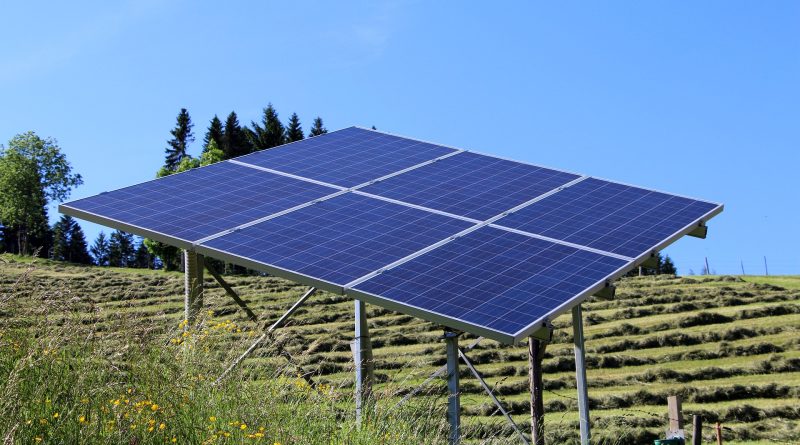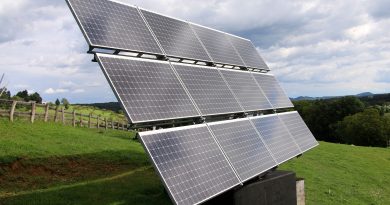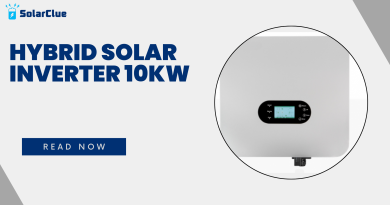Solar Home Appliances: Enhancing Your Eco-Friendly Lifestyle
Table of Contents
Solar Home Appliances: Shifting Towards Renewable and Sustainable Living
With rising concerns about climate change and the need to reduce our carbon footprint, the adoption of renewable energy sources has become imperative. Solar energy, in particular, has gained significant popularity as a clean and sustainable alternative. In recent years, solar home appliances have emerged as game-changers, allowing households to harness the power of the sun for their energy needs. In this blog, we will explore the benefits, options, and considerations associated with solar home appliances, paving the way for a greener and more sustainable future.
The Benefits of Solar Home Appliances
Solar Power: An Abundant and Renewable Source
One of the undeniable advantages of solar home appliances is their ability to tap into a vast and inexhaustible energy source – the sun. Unlike traditional energy sources such as coal or gas, solar power is renewable and sustainable as long as the sun keeps shining. By harnessing this abundance, households can significantly decrease their reliance on fossil fuels, thus reducing greenhouse gas emissions and mitigating climate change.
Reduced Electricity Bills and Long-Term Cost Savings
Installing solar home appliances can lead to substantial savings on electricity bills over time. Solar panels convert sunlight into electricity, powering appliances and reducing the energy drawn from the grid. With the right equipment and efficient energy management, households can enjoy significant cost savings in the long run. Moreover, as technology advances and solar panels become more affordable, the initial investment in solar home appliances is becoming increasingly accessible for homeowners.
Energy Independence and Reliable Power Supply
Traditional power grids are susceptible to grid failures, especially during extreme weather events or emergencies. However, solar home appliances help foster energy independence by providing a reliable power supply even during blackouts or when the grid is down. By storing excess energy in batteries, homeowners can ensure uninterrupted power supply and peace of mind.
Reduced Environmental Impact
Solar home appliances contribute to a cleaner environment by minimizing the emission of harmful pollutants and greenhouse gases that result from traditional energy generation. By adopting solar power, households play an active role in fighting climate change and reducing air pollution, ultimately leading to improved air quality and promoting environmental sustainability.
Types of Solar Home Appliances
Solar Panels for Electricity Generation
Solar panels are perhaps the most recognizable solar home appliance. These panels contain photovoltaic cells that convert sunlight into electricity. They can be installed on rooftops or in open spaces and are the primary source of solar energy for powering various appliances.
Solar Water Heaters
Conventional water heaters consume a considerable amount of energy, contributing to high electricity bills. Solar water heaters, on the other hand, heat water using solar energy, significantly reducing energy consumption and costs. These appliances are simple to install and can provide households with hot water throughout the year.
Solar-Powered Outdoor Lighting
Solar-powered outdoor lighting is an excellent way to illuminate gardens, pathways, and outdoor areas without relying on the grid. These lights contain built-in solar panels that store energy during the day and automatically illuminate at night. They are cost-effective and environmentally friendly alternatives to traditional outdoor lighting.
Solar-Powered Ventilation Systems
Solar-powered ventilation systems, often used in homes and attics, provide an energy-efficient solution to regulate indoor temperatures. These systems use solar energy to power fans or vents, keeping the air fresh and reducing the need for air conditioning. By reducing energy consumption, solar-powered ventilation systems contribute to lower electricity bills and a greener environment.
Considerations for Adopting Solar Home Appliances
Assessing Your Energy Needs
Before investing in solar home appliances, it is essential to evaluate your household’s energy needs. Consider the appliances you currently use, their energy consumption, and the peak times of energy usage. This assessment will help determine the number and capacity of solar panels required to meet your energy requirements effectively.
Installation and Maintenance Costs
While solar home appliances offer long-term cost savings, it is crucial to consider the initial installation and maintenance costs. Installation costs can vary depending on the appliance and the complexity of the system. However, it is important to note that with advancements in technology, the costs associated with solar panels have significantly decreased in recent years. Additionally, regular maintenance and cleaning of solar panels are necessary to ensure optimal performance and longevity.
Local Regulations and Incentives
Before installing solar home appliances, it is essential to familiarize yourself with local regulations and zoning requirements. Some regions may require permits for installing solar panels or have specific guidelines for their placement. Moreover, it is important to research any available government incentives, tax credits, or rebate programs that may offset a portion of the installation costs. These incentives can enhance the financial feasibility of adopting solar home appliances.
Conclusion:
Transform your home sustainably with SolarClue® and embrace the eco-friendly lifestyle powered by solar home appliances. From solar water heaters reducing energy consumption to solar lighting systems illuminating your space, our range of appliances harnesses clean energy for everyday needs. Solar cookers and fans offer cost-effective and green alternatives, contributing to lower carbon footprints. SolarClue® integrates these appliances seamlessly into your existing home systems, providing a pathway to long-term energy savings. Explore government incentives and let our experts guide you in adopting solar technologies for a greener, more sustainable home. Contact us for a personalized consultation and embark on a journey towards an eco-friendly lifestyle with SolarClue®.
Frequently Asked Questions
Solar home appliances utilize clean, renewable energy from the sun, reducing reliance on traditional power sources and minimizing environmental impact.
Solar water heaters, solar lighting systems, solar air conditioners, and solar-powered fans are popular choices for eco-conscious homes.
Yes, solar appliances are designed for easy integration, offering a sustainable and efficient addition to conventional home electrical setups.
Solar water heaters harness sunlight to heat water, significantly reducing the energy required for water heating and lowering utility costs.
Solar fans operate on clean energy, reducing electricity consumption and providing a sustainable solution for cooling indoor spaces.
Solar lighting systems use solar energy to illuminate homes, offering an energy-efficient alternative to conventional lighting and lowering overall electricity usage.
Yes, many regions offer incentives, rebates, or tax credits to encourage the adoption of solar technologies, making eco-friendly choices more accessible.
Absolutely, solar cookers harness sunlight for cooking, eliminating the need for conventional fuels and promoting sustainable and clean cooking practices.
Contact SolarClue® for expert guidance. Our team evaluates your energy needs, recommends suitable solar appliances, and facilitates a seamless transition to a more sustainable and eco-friendly home.
By tapping into solar energy, these appliances reduce dependence on grid power, leading to long-term cost savings on electricity bills and fostering environmental sustainability.




